The Breakbeat Poets
Kevin Coval and Nate Marshall, editors of the poetry anthology The Breakbeat Poets: New American Poetry in the Age of Hip-Hop (Haymarket Books, 2015), speak about the impact hip-hop has had on poetry and on their own writing.
Jump to navigation Skip to content
Kevin Coval and Nate Marshall, editors of the poetry anthology The Breakbeat Poets: New American Poetry in the Age of Hip-Hop (Haymarket Books, 2015), speak about the impact hip-hop has had on poetry and on their own writing.
Submissions are currently open for the inaugural Pleiades Press Editors Prize for Poetry. A prize of $2,000 and publication by Pleiades Press, with distribution by Louisiana State University Press, will be given annually for a poetry collection. The winner will also be invited to read at the University of Central Missouri in Warrensburg. The editors will judge.
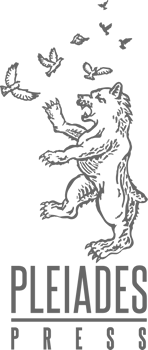 Using the online submission manager, send a poetry manuscript of at least 48 pages with a $25 entry fee, which includes a poetry collection published by Pleiades Press, by May 4. Submissions may also be sent via postal mail to Pleiades Press, Department of English, Martin 336, University of Central Missouri, Warrensburg, MO 64093.
Using the online submission manager, send a poetry manuscript of at least 48 pages with a $25 entry fee, which includes a poetry collection published by Pleiades Press, by May 4. Submissions may also be sent via postal mail to Pleiades Press, Department of English, Martin 336, University of Central Missouri, Warrensburg, MO 64093.
Established in 2000, Pleiades Press is housed at the University of Central Missouri. The press releases several poetry books each year and also publishes the literary journal Pleiades. For the past fifteen years, the press has also administered the Lena-Miles Wever Todd Poetry Prize. Recent winners include Adrian C. Louis, Katie Bichkham, Abigail Cloud, Katy Didden, Bruce Snider, and Julianna Baggott.
Brett Fletcher Lauer and Lynn Melnick, editors of the poetry anthology, Please Excuse This Poem: 100 New Poets for the Next Generation (Viking, 2015), introduce poets from the collection at a reading at the Strand Book Store in New York City.
Music and poetry both use sounds and lyrical passages to stir up emotion. This week, put on a piece of classical or instrumental music with a pen and paper nearby. While listening, jot down any ideas that come to you, any emotions you experience, any images you see. Once the piece ends, play it from the beginning and start writing a poem that embodies the music. Let your syntax mirror the music's movement, your sounds blend and layer like the instruments in an orchestra, and your themes evoke the story within the piece of music you've chosen.
Alanna Lin Ramage is a writer, songwriter, and artist-in-residence at the Los Angeles Little Tokyo Branch Library, where she hosts innovative, community-building events and workshops at the Los Angeles Department of Writing and Power (LADWP!*). She has studied poetry with Thomas Sayers Ellis and poetics and performance theory with Jon Wagner and Mady Schutzman at California Institute of the Arts. Ramage composes original lyrics and music for film and television. This year sees the release of a cover album inspired by the Beatles in tandem with publishing her first collection of poems about monastery wildlife in Northern California.
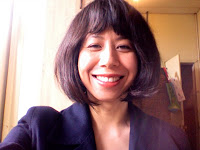
A few years ago, in a fit by candlelight, I came up with a syllabus for a workshop called Alters/Altars. It was designed to help a person write and explore their way into an alter ego—the poetic self that feels its own voice and power while feeling all, but not revealing all.
In February of this year, thanks to support from Poets & Writers and the Little Tokyo Branch Public Library, I was able to teach a five-week version of the workshop in downtown Los Angeles.
One premise I was working with included the physical effect of writing as a physical act. For each class, participants would read their pieces aloud and receive positive feedback from the group. In some cases the reading would be formal, at the front of the room. On other days, I had readers stand in the middle of a group circle that echoed words or phrases as the story unfolded. One writer noticed that she read to a mostly quiet circle. She later commented that she realized she had to read "painfully slowly" to give listeners a chance to register her words more fully. She reread her piece to us and we happily listened to every word.
In another exercise, we gave alternate names to one another. The unspoken invitation was: “What name suits me in your opinion? What is my sonic incarnation? Do you really think it’s ‘Bubby?’”
The first workshop started with participants reading personal biographies or ads, and then writing fictional personal ads for someone other than themselves. The exercise allowed us to get to know each other while ascertaining each person’s unique writing style. Week two’s life stories were especially intense, offering glimpses into epic quests for love and destiny. Week three featured hypothetical after-life sequences from each person—revealing visions of beautiful, earthy, sublime, and often hilarious realities to come.
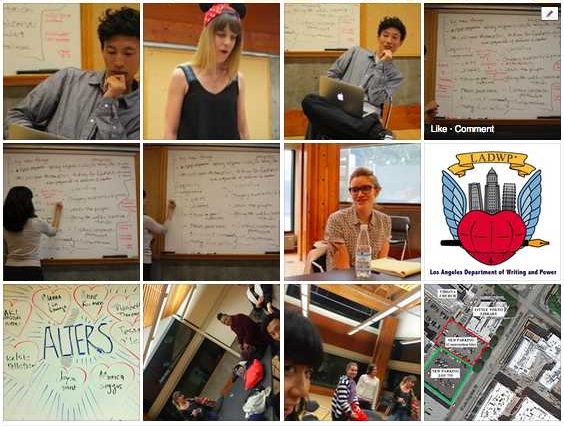 We had a dynamic, talented, and punctual group. It was a pleasure to discuss personal creative journeys, hear the mix of angst, frustration, wisdom, confidence, and steady determination that characterized each person. The group had great discussions about what makes a “healthy writer” versus what makes a “happy writer.”
We had a dynamic, talented, and punctual group. It was a pleasure to discuss personal creative journeys, hear the mix of angst, frustration, wisdom, confidence, and steady determination that characterized each person. The group had great discussions about what makes a “healthy writer” versus what makes a “happy writer.”
My favorite session of the workshop included an assignment that asked participants to write about a sublime or transcendent moment. The results were diverse and fantastic. There was a great relationship-ending-epiphany story, an excellent dim-sum-as-travel-as-exploration-of-life story, a profound unity-with-wild-crustaceans story, and a stirring overcoming-self-while-overcoming-mountain story.
The session made me think about how creative anxiety can sometimes blind us to the larger themes we've experienced in life. It may keep us from sharing the stories we’ve already lived or from inventing stories that might express what we know.
So how do we move past this anxiety? Decide what themes are important to you based on your life experience. Once you have: Write on! (OK, that was a bad pun. I’m a workshop leader—it’s allowed.)
Writing alters you. Be brave and do the work; you just might tell a riveting story as you sacrifice your fears.
Photo 1: Alanna Lin Ramage; photo 2: Alters/Altars workshop. Credit: Alanna Lin Ramage and Anne Rieman.
Major support for Readings & Workshops in California is provided by the James Irvine Foundation. Additional support comes from the Friends of Poets & Writers.
"I've always loved, just the play of language." Kimiko Hahn speaks about growing up immersed in multiple languages and how that has influenced her writing. Hahn is one of the nine authors featured in "The Judges" in the May/June issue of Poets & Writers Magazine.
Mark Doty introduces and reads "A Display of Mackerel," from his poetry collection Atlantis (HarperCollins, 1995), on PBS NewsHour in 2011. Read Maya C. Popa's interview with Doty in the May/June issue of Poets & Writers Magazine—and listen to a conversation with the poet in the first episode of Ampersand: The Poets & Writers Podcast.
Nominations are currently open for the 2015 American Literary Translators Association’s National Translation Awards (NTA) in poetry and prose, and the Lucien Stryk Asian Translation Prize. Individual prizes of $5,000 are awarded annually to book-length works of translation published during the previous year.
 For the National Translation Awards, publishers and translators are invited to nominate translations from any language into English. The Lucien Stryk prize accepts nominations of book-length translations of Asian poetry or Zen Buddhist texts into English. The NTA and Lucien Stryk prizes are sponsored by the American Literary Translators Association (ALTA) to support the organization’s goal of advancing the quality and art of literary translation.
For the National Translation Awards, publishers and translators are invited to nominate translations from any language into English. The Lucien Stryk prize accepts nominations of book-length translations of Asian poetry or Zen Buddhist texts into English. The NTA and Lucien Stryk prizes are sponsored by the American Literary Translators Association (ALTA) to support the organization’s goal of advancing the quality and art of literary translation.
For both the NTA and Lucien Stryk awards, PDF files of translated books should be uploaded using the online submission manager by May 1. Submissions are judged according to the “literary significance of the original and the success of the translation in recreating the artistry of the original.” For complete guidelines and eligibility requirements, visit the ALTA website.
This year’s award-winning translators and finalists will be honored at the thirty-eighth annual conference of the American Literary Translators Association in Tucson, Arizona. Judges for the 2015 NTA in prose are Pamela Carmell, Jason Grunebaum, and Anne Magnan-Park. The judges in poetry are Lisa Rose Bradford, Stephen Kessler, and Diana Throw. The 2015 Lucien Stryk prize judges are Lucas Klein, Janet Poole, and Stephen Snyder.
Now in its seventeenth year, the National Translation Award is the oldest prize for a work of literary translation. This year marks the first time the prize will be given in both the poetry and prose categories. Last year, Eugene Ostashevsky and Matvei Yankelevich won for their translation of Russian poet Alexander Vvedensky’s An Invitation For Me to Think (New York Review Books, 2013).
The Lucien Stryk Asian Translation Prize was established in 2009 to “recognize the importance of Asian translation for international literature,” and is named for acclaimed translator of Asian poetry and Zen Buddhist Lucien Stryk. The 2014 winner was Jonathan Chaves for his book Every Rock a Universe: The Yellow Mountains and Chinese Travel Writing (Floating World Editions, 2013), which includes the first complete translation of Chinese poet Wang Hongdu’s Comprehending the Essentials of the Yellow Mountains.
ATLA will also award four to six travel fellowships of $1,000 each to emerging translators to attend the ATLA conference in Tuscon on October 28. Submissions are open until June 1. Fellowship eligibility requirements and application guidelines are available online.
For inquiries, e-mail ALTA managing director Erica Mena at erica@literarytranslators.org.
Samuel Ace is the author of three collections of poetry: Normal Sex (Firebrand Books, 1994), Home in Three Days. Don’t Wash. (Hard Press, 1996), and most recently, Stealth (Chax Press, 2011) co-authored with Maureen Seaton. His work has been widely anthologized and has appeared most recently in Aufgabe, Black Clock, the Atlas Review, Mandorla, Volt, Rhino, Versal, Trickhouse, Eleven Eleven, Tupelo Quarterly, the Volta, and Troubling the Line: Genderqueer Poetry and Poetics.
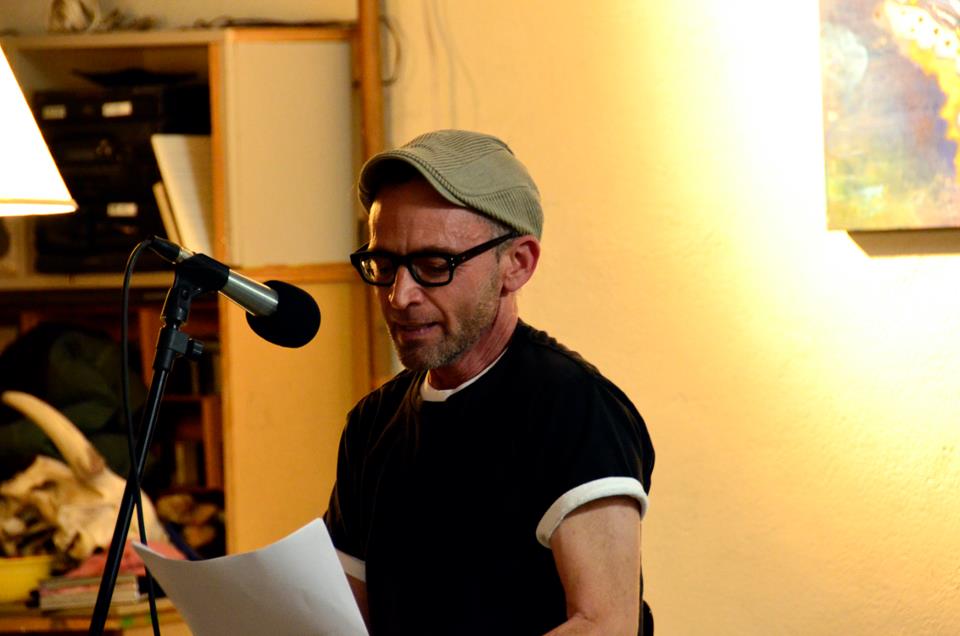
A transplanted New Yorker, I moved to Tucson in 1997. It is often said that people move to the desert to burn out karma. Perhaps that is true. I certainly have passed through several lifetime transformations here under the scorching sun, the blooms of ocotillo, and the fresh smell of creosote after summer rains. I had long harbored a fantasy about living in the desert but thought that the move was temporary.
Before coming here, I visited the University of Arizona’s Poetry Center, then a tiny cottage on the border of the university. I somehow understood that Tucson had a long tradition of drawing in writers from around the country, and thought yes, it would be a good place to land for a while. Once I arrived, I found that I was not wrong.
Not only did Tucson have a vital literary community, it had many diverse writing communities. The city, in the midst of a state full of deeply problematic politics, seemed to offer an antidote. The crossroads and richness of the border, of indigenous communities, languages, queerness, experimentation, scholarship, activism, and more saturate this small city in the desert. Those traditions have only gotten richer and more visible over the years. Poets & Writers funds many of the organizations that have added to that diversity. During the season (August through May), one can easily attend three to five readings a week in Tucson.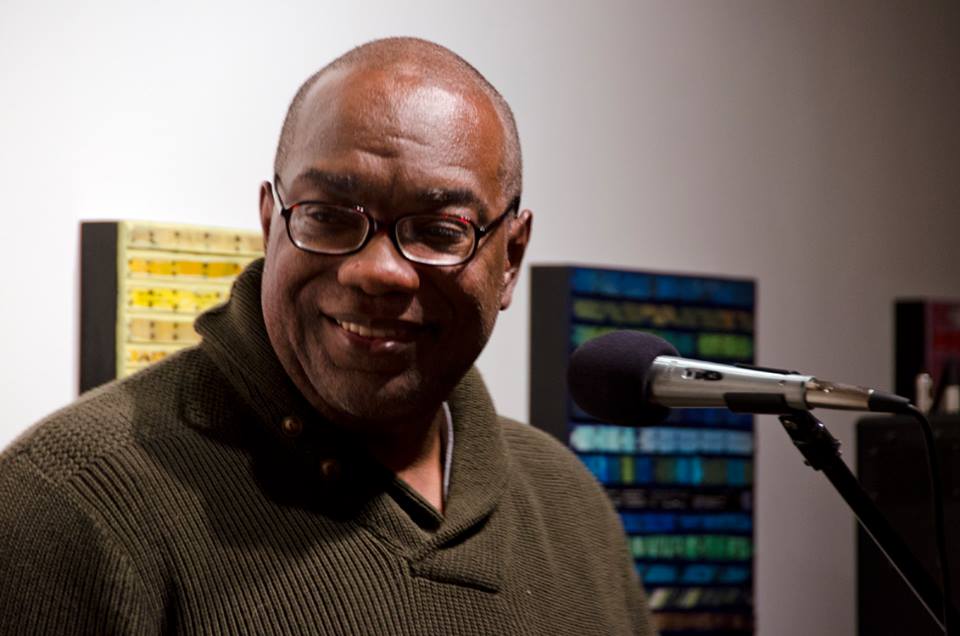
In 1996, Tenney Nathanson and Charles Alexander, director of Chax Press, founded POG, a collective of poets, literary critics, and practitioners of other art forms in Tucson. They hoped to offer public programming and other related events designed to promote appreciation of and engagement with avant-garde work in a variety of media, especially poetry and multi-disciplinary art. I joined the Board of Directors of POG for a short time in the early 2000s, then rejoined the Board a few years ago. Besides original board members Nathanson, Alexander, and Cynthia Miller, the following diverse group of writers and artists make up our current board: Farid Matuk, Steve Salmoni, Susan Briante, Johanna Skibsbrud, John Melillo, Teré Fowler-Chapman, and Brian Blanchfield.
POG has always showcased innovative poets and artists from around the United States and beyond, including Bernadette Mayer, Fred Moten, Alice Notley, Anne Waldman, Mei-mei Berssenbrugge, Nathanial Mackey, Ariana Reines, Giovanni Singleton, Heriberto Yepez, Roberto Tejada, and over a hundred more. Our readings traditionally pair a local poet with someone from outside of the Tucson area. POG has also hosted workshops and artist talks; the recent inPrint Symposium in February featured Amos Paul Kennedy Jr. and Kyle Schlesinger. The POG & Friends reading, now an annual tradition, is designed to build community and has fostered a greater sense of kinship among Tucson’s diverse literary venues.
POG also collaborates regularly with other Poets & Writers-funded organizations, including the Intermezzo Reading Series, Casa Libre en Solana, the Tucson Festival of the Book, the University of Arizona Poetry Center, and the University of Arizona English and Writing MFA programs. Just this month, our most current collaboration with the Tucson Poetry Festival enabled us to bring Claudia Rankine to Tucson.
The desert brings transformation and gifts. For this poet, those gifts have come in multitudes through the writers who make Tucson their home and the writers who touch down for a short visit. Many have come and stayed. None leave untouched by what is found here.
Photo (top): Samuel Ace Photo Credit: Samuel Ace
Photo (bottom): Fred Moten Photo Credit: Samuel Ace
Support for Readings & Workshops events in Tucson is provided by an endowment established with generous contributions from the Poets & Writers Board of Directors and others. Additional support comes from the Friends of Poets & Writers.
In a video shared by Button Poetry, Nate Marshall reads his poem "Prelude (R.I.P.)" at the Fox Egg Gallery in Minneapolis. Marshall is featured in "Winners on Winning (and Losing)" in the May/June issue of Poets & Writers Magazine.